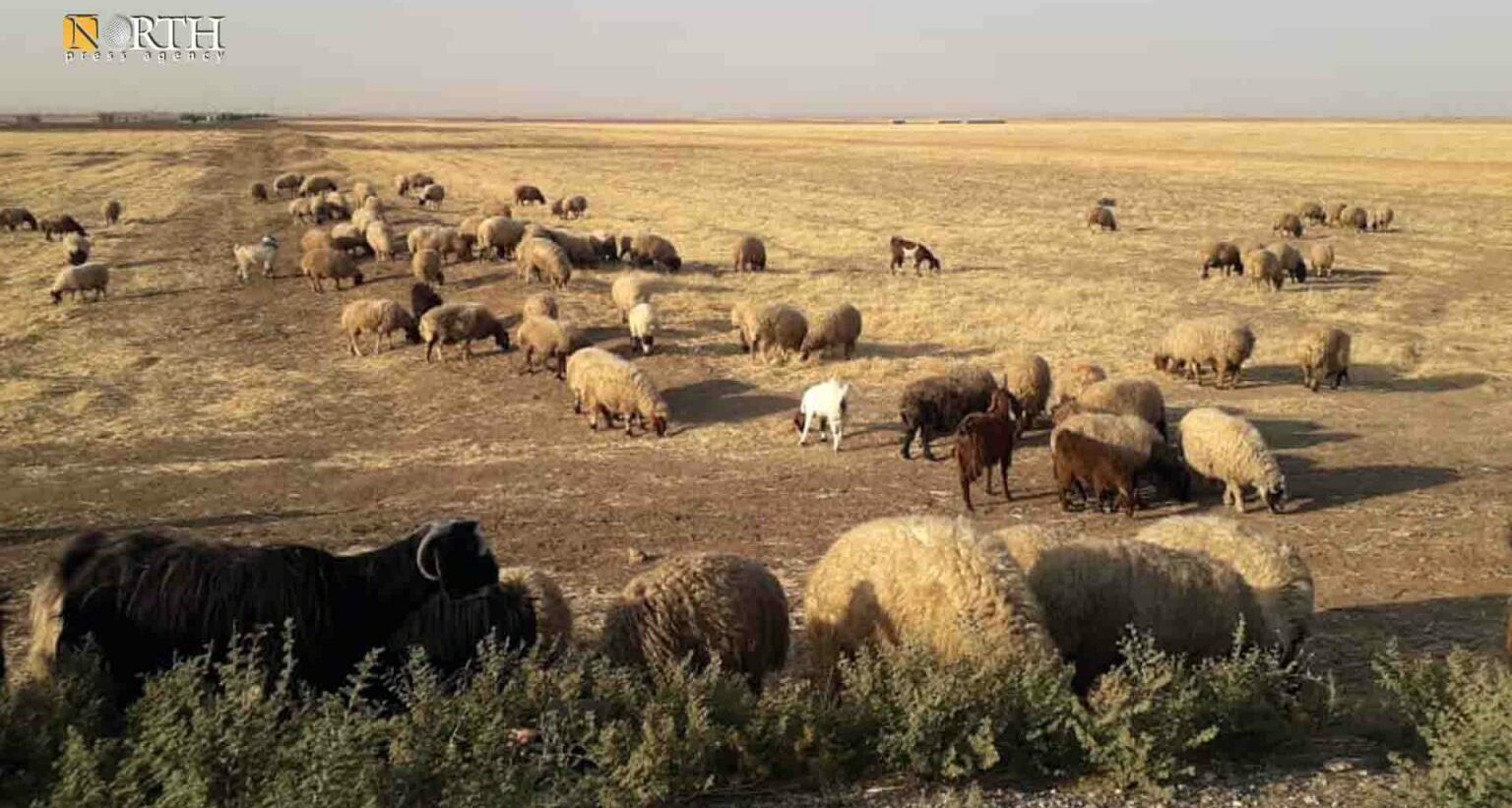Sheep raising experienced recently a significant turnout in the countryside of Til Kocher eastern Syria’s city of Hasakah due to higher margin rates and Syrian currency collapse.
People of the countryside of Til Kocher, which is located to the east of the city of Hasakah on the borders with Iraq, tend to raise sheep as a mean of saving money, after Syrian currency collapse.
However, other people attributing that sheep raising has higher margin and less cost in comparison with other jobs in the region, since most people are not good at other jobs.
Mushrif al-Abud, 44, a shepherd and sheep farmer of Musherefah village, said that the demand for sheep raising and trade was unprecedented, this was attributed to the availability of grazing areas, low wages of shepherds, low prices of fodder materials, especially barley, led to an increase in the demand for sheep prices.
al-Abud complained overpriced vaccines and medicines which sheep and their young need during the seasonal transitions from forage period to pasture period and vice versa.
Sheep raising is considered one of the main resources for the region’s population, but it declined dramatically during the war years until it dwindled in 2014.
According to Agriculture Directorate in Hasakah, affiliated with the Syrian government, the numbers of sheep in al-Jazira region this year reached more than one million and 638 thousand sheep.
In the last two years, sheep prices have risen in record numbers, with the escalation of the costs of raising them and Syrian currency decline.
Jassem al-Fayez, a veterinarian, told North Press that vaccines are available, but high prices of vaccines were due to buying them in USD.
He added that the two most deadly diseases in young sheep during the summer are Bacillus Pasteurella and smallpox, for which the necessary vaccines were recently distributed to farmers.
“There are many organizations that have provided free vaccinations to sheep farmers.” al-Fayez added.
Hussein al-Rumaid, a broker and livestock dealer, told North Press that there was a great recovery in the sheep market because sheep became as a mean of saving money, and most people were not good enough to invest in other than raising sheep and cattle.
He pointed out that the influx of livestock to the Raqqa market and smuggling to Iraq contributed to raising the prices, which was related to weight and ranges between 300 thousand to 500 thousand Syrian pounds which means some 227 USD per a sheep, while the price a good sheep reaches one million (450 USD).
Residents of the region point out that smuggling sheep and cattle has always been a profession followed by many of the region’s residents decades ago, and it has remained in force during the war years and until the present day.
Adnan al-Ayed, head of the Peasants’ Union in Til Kocher, said that the union provides its services in cooperation with some associations and organizations concerned with the development of the countryside.
He added that dozens of farmers who own thousands of sheep have received services such as treatment, vaccination and feed for free throughout the year.

